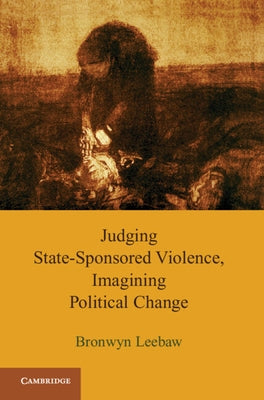1
/
of
1
Cambridge University Press
Judging State-Sponsored Violence, Imagining Political Change
Judging State-Sponsored Violence, Imagining Political Change
Regular price
$142.72 USD
Regular price
Sale price
$142.72 USD
Shipping calculated at checkout.
Quantity
Couldn't load pickup availability
How should state-sponsored atrocities be judged and remembered? This controversial question animates contemporary debates on transitional justice and reconciliation. This book reconsiders the legacies of two institutions that transformed the theory and practice of transitional justice. Whereas the Nuremberg Trials exemplify the promise of legalism and international criminal justice, South Africa's Truth and Reconciliation Commission promoted restorative justice and truth commissions. Bronwyn Leebaw argues that the two frameworks share a common problem: Both rely on criminal justice strategies to investigate experiences of individual victims and perpetrators, which undermines their critical role as responses to systematic atrocities. Drawing on the work of influential transitional justice institutions and thinkers such as Judith Shklar, Hannah Arendt, Jos Zalaquett, and Desmond Tutu, Leebaw offers a new approach to thinking about the critical role of transitional justice - one that emphasizes the importance of political judgment and investigations that examine complicity in, and resistance to, systematic atrocities.
Author: Bronwyn Leebaw
Publisher: Cambridge University Press
Published: 04/18/2011
Pages: 224
Binding Type: Hardcover
Weight: 1.05lbs
Size: 9.00h x 6.20w x 0.80d
ISBN: 9781107000582
Author: Bronwyn Leebaw
Publisher: Cambridge University Press
Published: 04/18/2011
Pages: 224
Binding Type: Hardcover
Weight: 1.05lbs
Size: 9.00h x 6.20w x 0.80d
ISBN: 9781107000582
About the Author
Leebaw, Bronwyn: - Dr Bronwyn Leebaw is currently an Assistant Professor in the Political Science Department at the University of California, Riverside. She has received funding from institutions such as the Hewlett Foundation, the Institute for the Study of World Politics and the Mellon Foundation. Her interest in transitional justice, restorative justice and human rights has led her to South Africa, Bosnia-Herzegovina and The Hague, Netherlands. Leebaw has published several articles on these topics in journals such as Perspectives on Politics, Human Rights Quarterly and Polity.
Share


